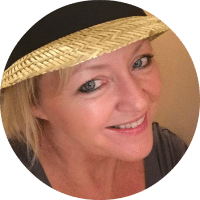
Here’s the thing: as travel writers, we can go to some of the most incredible places on the planet, but if we don’t find a home for the stories about those places, we’re never going to be successful.
So I used to spend hours—LOTS of hours—researching publications to find the right editor to pitch, becoming familiar with the content, and drafting the perfect query. And then I’d wait… and wait… and follow-up… and follow-up again. Sometimes I got the assignment… other times I didn’t. And, sometimes I never heard back despite all the hours I’d put into my work.
Then I made a discovery.
Developing relationships with editors takes away the necessity for constant pitching—and saves me hours of precious time. I still send queries to publications I haven’t worked with before. But, I also have several regular publications where the editors don’t require me to pitch story ideas formally. Some even call me with assignments. And that saves me a lot of time.
One editor commissions three articles from me each month. Every quarter I email him 10 to 12 brief ideas and he picks the nine he likes best.
I’m familiar with the publication, so there’s no research beyond a quick check to make sure the story hasn’t been covered in the magazine in the last year or two. This not only saves me time, but it also guarantees me a certain amount of income each month. That’s a win-win in my book!
Another editor I work with often calls to toss ideas around on the phone. I’ll suggest stories based on places I’ve traveled to or will visit soon. He’ll give me immediate feedback on the angle he would like and what he can pay. Sometimes he’ll even reach out to me with a new column idea or a series he wants me to write. I LOVE it when that happens!
Here’s how I made it happen…
Some of these relationships developed from in-person meetings. Networking at local tourism events led to the start of a working relationship with several editors. Conferences and workshops are also an ideal place to meet and network with editors—especially those speaking on an editors’ panel.
A prime example of this was an editor I met at the Ultimate Travel Writer’s Workshop in Chicago. After listening to him speak on the editor’s panel, I knew I had a story idea that was perfect for his publication. During the networking happy hour, I introduced myself, chatted a bit, then mentioned my idea. He liked the story and assigned it to me on the spot. Within a few weeks, I had written the article and landed a byline in his magazine. I’ve written several more articles for him since then, too.
Remember the editor I mentioned who assigns me three articles every month? I met him on a press trip. It’s true that this option isn’t open to first-timers, but it never hurts to know that this is where I’ve found editors in the past… because when you get there, you should be on your best behavior. You never know who’ll you’ll be traveling with on a group press trip, so use those opportunities to get to know people.
It can lead to time-saving and money-making opportunities.
Of course, other relationships have developed through the pitching and writing process. Once an editor assigns me an article, I make sure to turn it in on time and without errors. Doing this consistently over the years has helped me develop positive ongoing relationships… and that has led to more assignments, too.
Honestly, it’s all about making the editor’s life easier and being nice. No one wants to work with a person who turns in assignments late, is argumentative about editing requests, or who is generally unpleasant to work with. In one of my favorite editor’s words, “Don’t be a diva!”
Building a positive relationship with an editor saves YOU time and increases your travel writing income. Think about it: If you can eliminate hours of research to find a home for your articles, you’ll be working smarter not harder—spending less time researching and pitching, and more time traveling and enjoying yourself—and that’s the ultimate goal of successful travel writers everywhere!
